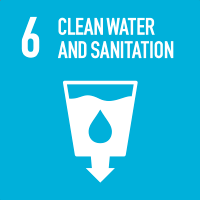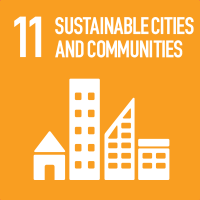Studying at the University of Verona
Here you can find information on the organisational aspects of the Programme, lecture timetables, learning activities and useful contact details for your time at the University, from enrolment to graduation.
Type D and Type F activities
This information is intended exclusively for students already enrolled in this course.If you are a new student interested in enrolling, you can find information about the course of study on the course page:
Laurea magistrale in Lingue per la comunicazione turistica e commerciale - Enrollment from 2025/2026Nei piani didattici di ciascun Corso di studio è previsto l’obbligo di conseguire un certo numero di CFU di tipologia D e di tipologia F.
CFU D (attività a scelta dello studente)
I CFU D possono essere acquisiti mediante:
- insegnamenti non obbligatori nel proprio piano didattico (previa approvazione del Presidente del Collegio didattico per insegnamenti non selezionabili in autonomia)
- attività accreditate dal Collegio didattico
- competenze linguistiche (diverse o ulteriori) rispetto a quelle obbligatorie
- tirocini o stage
- TALC (competenze trasversali).
Il numero di CFU D va calcolato complessivamente sull’intero triennio/biennio e non è legato all'annualità.
Competenze trasversali
Scopri i percorsi formativi promossi dal Teaching and learning centre dell'Ateneo, destinati agli studenti iscritti ai corsi di laurea, volti alla promozione delle competenze trasversali: https://talc.univr.it/it/competenze-trasversali
Nota bene: i corsi TALC sono riconosciuti solo come CFU D.
Contamination Lab
Il Contamination Lab Verona (CLab Verona) è un percorso esperienziale con moduli dedicati all'innovazione e alla cultura d'impresa che offre la possibilità di lavorare in team con studenti e studentesse di tutti i corsi di studio per risolvere sfide lanciate da aziende ed enti. Il percorso permette di ricevere 6 CFU in ambito D. Scopri le sfide: https://www.univr.it/clabverona
ATTENZIONE: Per essere ammessi a sostenere una qualsiasi attività didattica, incluse quelle a scelta, è necessario essere iscritti all'anno di corso in cui essa viene offerta. PER I LAUREANDI: Si raccomanda ai laureandi delle sessioni di novembre e marzo/aprile di NON svolgere attività extracurriculari del nuovo anno accademico (cui loro non risultano iscritti), essendo tali sessioni di laurea con validità riferita all'anno accademico precedente. Le attività formative svolte in un anno accademico cui non si è iscritti, non danno luogo a riconoscimento di CFU.
CFU F
I CFU F sono solitamente relativi ad abilità informatiche, competenze linguistiche, stage e tirocini e ulteriori attività formative accreditate in questa tipologia dal Collegio Didattico.
Nel corso di laurea magistrale in Lingue per la promozione turistica e commerciale sono previste le seguenti tipologie:
- 6 CFU di ulteriori competenze linguistiche
- 9 CFU per stage o project work
Le attività di stage sono finalizzate a far acquisire allo studente una conoscenza diretta in settori di particolare utilità per l’inserimento nel mondo del lavoro, coerenti con il percorso di studi, e per l’acquisizione di abilità specifiche d’interesse professionale.
| years | Modules | TAF | Teacher |
|---|---|---|---|
| 1° 2° | Catalan language (elementary) | F |
Lidia Carol Gerones
(Coordinator)
|
| 1° 2° | Brasilian Portuguese language (elementary) [1 semestre] | F |
Leticia Valandro
(Coordinator)
|
| years | Modules | TAF | Teacher |
|---|---|---|---|
| 1° 2° | Catalan language (post-elementary) | F |
Lidia Carol Gerones
(Coordinator)
|
| 1° 2° | Brasilian Portuguese language (elementary) [2 semestre] | F |
Leticia Valandro
|
To discover all the teaching activities accredited by the foreign teaching college click here
Planning & Control (2024/2025)
Teaching code
4S02047
Teacher
Coordinator
Credits
6
Language
Italian
Scientific Disciplinary Sector (SSD)
SECS-P/07 - BUSINESS ADMINISTRATION AND ACCOUNTING STUDIES
Period
I semestre (Area Lingue e letterature straniere) dal Sep 23, 2024 al Dec 21, 2024.
Courses Single
Authorized
Learning objectives
The course aims to develop the most important issues concerning the managerial accounting within the context of the instruments for the decision making and control processes. More in details, after having defined the main goals of managerial accounting, the course focuses on the analysis of firm's costs, on their calculation, on their relationship with volumes, profit, environmental impacts and on their usage in the planning process. At the end of the course students will get the skills and competencies to apply the main tools to support decision-making related to control processes and environmental impact.
Prerequisites and basic notions
To attend the exam of this course it is necessary to have passed the exam of Financial Reporting and Analysis (A-L or M-Z)
Program
- Managerial accounting and enterprise context.
- Costs: concepts, definitions, and classifications.
- Costs determination systems: work order costs.
- Costs determination systems: process costs.
- Costs behavior: analysis and employment.
- Analysis of the relationship among cost, volume and profit.
- Environmental management system
REFERENCE
R. H. Garrison, E. W. Noreen, Programmazione e controllo, managerial accounting per le decisioni aziendali, McGraw-Hill, Milano, 2021 (chapters 1, 2, 3, 4 and 6 - no chapter 5), and additional teaching material provided by the professor.
Bibliography
Didactic methods
The teaching will be mainly provided with lectures and practical exercises. Possible company testimonials are foreseen
Learning assessment procedures
The exam consists of a written test consisting of three questions for a total duration of one hour. The written test includes open questions and exercises, to which a precise answer is required also by carrying out short calculations. For this reason, it is necessary to bring a calculator with you.
Evaluation criteria
The assessment is based on the following elements: level of knowledge, ability to critically apply knowledge, language properties.
Criteria for the composition of the final grade
A score from 0 to 10 points is assigned to each of the 3 questions. The final grade is equal to the sum of the scores obtained in the 3 questions. To pass the exam it is necessary to achieve a grade of at least 18/30. Honors are awarded on the basis of a critical ability of the results presented in the exam questions.
Exam language
italiano



